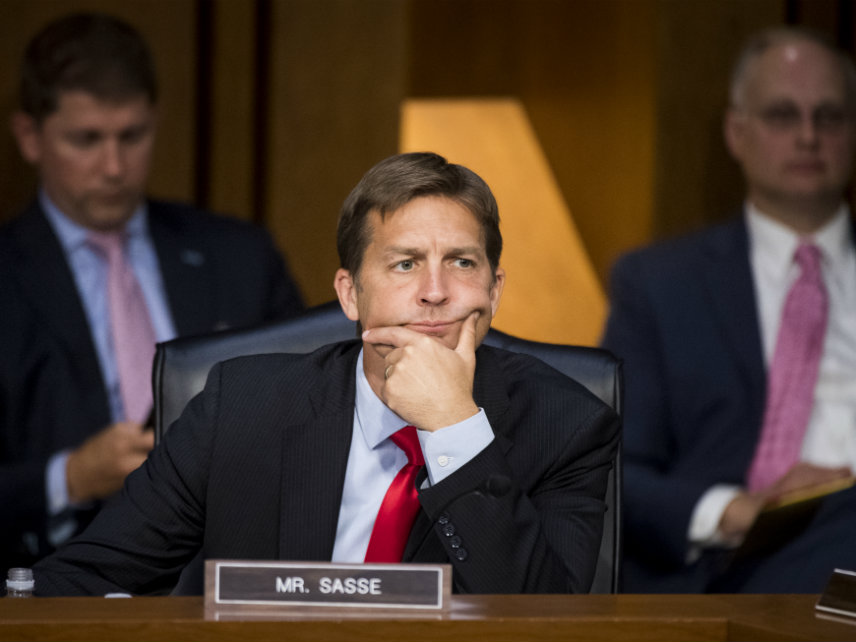Ben Sasse Explains Why the Politicization of the Supreme Court Is a Dangerous Thing
"Government is about power. Government is not just another word for things we do together," said Sasse.

Take 15 minutes out of your evening, pour a glass of something fun, and watch the entirety of what Sen. Ben Sasse (R–Neb.) had to say at today's confirmation hearing for Judge Brett Kavanaugh.
After a few minutes of summarizing his views about Kavanaugh—no surprise here, Sasse seems pretty supportive of Kavanaugh's nomination—the senator winds up by asking, rhetorically, why and how choosing a new member of the Supreme Court became such a complete shitshow (my word, not his). The blame, as Sasse explains in his brutally honest stemwinder, does not lie with Kavanaugh or even the unorthodox occupant of the White House.
"The hysteria around Supreme Court confirmation hearings is coming from the fact that we have a fundamental misunderstanding of the role of the Supreme Court in American life now," says Sasse. "Our political commentary talks about the Supreme Court like they are people wearing red and blue jerseys. That's a really dangerous thing."
But why has every Supreme Court nomination become such an "overblown politicized circus," as Sasse put it? In short, it's because Congress has abdicated its responsibility to be the nation's law-making authority. Deferring to the decisions of unelected bureaucrats and actively handing over power to the executive branch has short-circuited the democratic process, Sasse argued, leaving Americans with the sense that they do not control government, but rather the other way around.
"This transfer of power means that people yearn for a place where politics can actually be done. And when we don't do a lot of big actual political debating here, we transfer it to the Supreme Court, and that's why the Supreme Court is increasingly a substitute political battleground in America," said Sasse. "It is not healthy, but it is what happens, and it's something that our Founders wouldn't be able to make any sense of."
For the next 10 minutes, Sasse expanded on that basic thesis with a professorial breakdown of Articles I, II, and III of the U.S. Constitution, focused on how the weakening of Congress' role has thrown off the delicate balance of power that is supposed to sustain the American democratic experiment. Passing power from Congress to an "alphabet soup" of executive departments and agencies is a convenient way for lawmakers to avoid responsibility, he said, accusing Congress of neutering itself.
"Government is about power. Government is not just another word for things we do together," said Sasse. "Almost all the power right now happens off-stage, and that leaves people wondering 'Who is looking out for me?'"
I highly recommend watching the whole thing.
There are those who say Sasse is overly interested in droning on about how things are supposed to work while not doing much of anything to actually fix the problems he identifies; for those people, today's sermon will provide a different kind of satisfaction. Just today, conservative columnist Jennifer Rubin wrote in the Washington Post that Sasse is the "subject of ridicule from Democrats and private eye-rolling from right-leaning pundits for his penchant for grand, empty pronouncements and complete deference to the White House."
But we are certainly better off having someone sound these alarms about the failings of the system, even if his ability to fix things is equal to that of the proverbial coalmine canary. As Reason's Elizabeth Nolan Brown pointed out this morning, Sasse was one of only a few Republicans to condemn President Donald Trump's Labor Day tweet suggesting that the Department of Justice should operate according to the president's whims, rather than working to uphold the rule of law. If he's unable to do much about it, that probably says more about Sasse's colleagues than it does about him.


Show Comments (66)